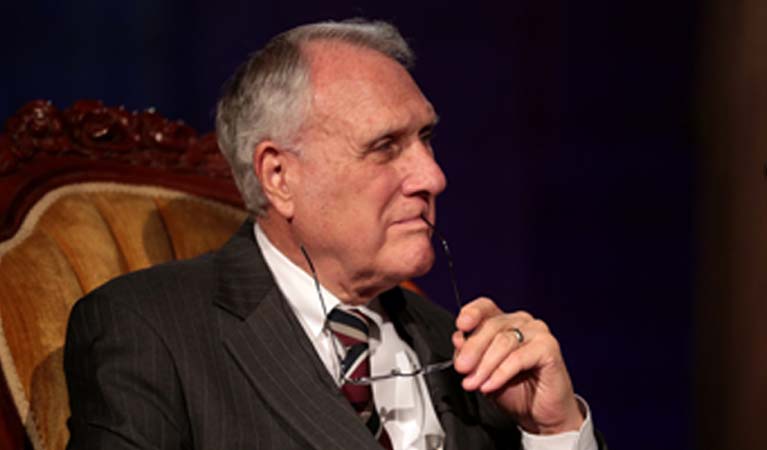One of the darkest days in the world of poker has been the passing of the Unlawful Internet Gambling Enforcement Act of 2006 (UIEGA). The piece of legislation that quickly dismantled hopes that the game can develop at a rapid pace and become a favorite American past-time. And now, the man behind the bill, Jon Kyl is back in senate.
The Man Who Kyled Poker
On Monday, Arizona Governor Doug Ducey decided to surprise the crowds of poker players and fans by summoning an old familiar face from the closet where the poker Bogey Man lives. Jon Kyl was elected to represent the State of Arizona in the Senate, following the recent passing-away of Senator John McCain.
Now that he is back in the hot seat, many are concerned. However, Kyl may not extend his stay until 2022 as with a normally elected candidate. As a temp, he will have to give up the seat, as a vote will take place as to who should fill the spot in 2020.
A more positive account is the fact that Senator Kyl is not likely to overstay his welcome as he himself has said that he would rather not run. All indications point that he will keep his word.
Back in his day, Kyl spearheaded the campaign against the gambling industry and worked with Rep. Bob Goodlatte to restrict the majority of online activities. The only spared segments were dog and horse racing, which have had a long tradition in the United States.
Following their collaboration, in the early 1990s UIGEA was briefly scrapped, but that didn’t dissuade Kyl to push on with renewed determination. Instead of floating UIGEA as its own bill, though Kyl knew that he will need to couch it in other terms.
The upshot? UIGEA got a free-pass with the Security and Accountability for Every Port Act. The UGIEA-clause was never debated and it fell like a hammer on the industry, effectively killing it to a large extent.
The Fallout of UIGEA
Understand UIGEA is key to why people fear its possible return or reinvigoration. The bill basically barred banks from facilitating transfers to and from offshore and more specifically “illegal” gambling websites. A gross omission of the bill, though, was the fact, that it avoided defining what such “illegal” websites truly were.
However, it had served its intended purpose, stripping operators and investors from confidence and marginalizing poker in the process. With Kyl back in congress, poker fans do have a mild reason for concern, but the Senator seems to be well past his poker and iGaming fighting days.
Kyl is not the danger he used to be and poker is now too-entrenched, even if only in specific areas, to be uprooted by a politician who is serving only temporary. Not to mention that the game seems to be expanding in other states, too. Still, it’s always worth considering the possible contingencies and trying to steer clear from any potential dangers.
For better or for worse, nobody should bring poker to the attention of Mr. Kyl lest he decides he still has one more battle to win.







